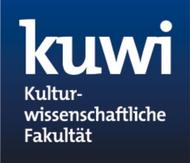Research
Research and transfer projects
What stories do the buildings of the European University Viadrina Frankfurt (Oder) tell that are used for teaching, research and work today? Students have been investigating this question for two semesters in a seminar led by Viadrina historian Prof Dr Werner Benecke. Together, they created the exhibition „New Spirit in Old Walls“. It was on display on the first floor of the Gräfin-Dönhoff building from 1 November 2022 to 10 February 2023. From 13 June 2023, the exhibition will be shown in German and Polish at the Collegium Polonicum.
„We wanted to find out what purpose the buildings served before they were used by the Viadrina, with what intention they were built and what the original architectural aesthetics were,
said Prof Dr Werner Benecke, explaining the idea behind the seminar and the exhibition. „We were interested in where we could discover traces of history that are still partially concealed today. We found them, for example, in the invisible plaques commemorating the employees of the Government Presidency who died in the First World War in the entrance area of the main building,
the historian gives an example. Coordination
Prof. Dr Werner Benecke
ParticipationChristina Flöhr, Jenny Klann, Max Kunschke, Veronika Weisheimer
Running time1 November 2022 to 28 February 2023 in the Gr fin-Dönhoff building
On 28 October 1938, 17,000 Jewish people with Polish citizenship were arrested in the German Reich and deported to Poland. The exhibition at St Mary's Church in Frankfurt (Oder), which opens on Friday 28 October 2022, commemorates this injustice and its consequences. At the invitation of the Centre for Interdisciplinary Polish Studies at the European University Viadrina Frankfurt (Oder) and the Institut für angewandte Geschichte e. V., the exhibition will be on display until Sunday, 27 November 2022. The show was specially created for the Frankfurt (Oder) stop by Prof. Dr Werner Benecke and the team from his professorship for the Culture and History of Central and Eastern Europe to include a Frankfurt perspective. In addition to the stories of six Jewish Berlin families before, during and after 28 October 1938, the fate of the Frankfurt citizen Eliasz Rammer is now also presented thanks to the Viadrina research. Coordination
Prof. Dr Werner Benecke
ParticipationDr Markus Nesselrodt, Veronika Weisheimer
Duration of the exhibition28 October 2022 to 27 November 2022 in the Marienkirche Frankfurt (Oder)
Habilitations
The aim of the work is a comparative history of (imperial) ideas of rule and the reactions of the multi-ethnic population of Warsaw. Using the example of Warsaw, an important residential city for the history of the Polish-Lithuanian Commonwealth, this connection will be analysed over a period of four decades and four different political systems: The last years of the Polish-Lithuanian Commonwealth, the Prussian provincial capital, the capital of the Duchy of Warsaw and a major city in the Kingdom of Poland as part of the Russian Empire.
The chosen period seems to me to be of particular interest for two reasons. Firstly, it is a period in which rule changed at relatively short intervals. Ideas about the future of the ruled territory and its population were developed and discarded within a very short space of time. The perspective on breaks and continuities is intended to show in which areas changes of rule had an impact and where they did not.
Secondly, the period seems to me to be worthy of investigation because changes of rule, understood as moments of crisis, always meant a renegotiation of political power. Whether under the Prussian king, the Russian tsar or Napoleon, there were always opportunities to co-operate with the new rulers, which were also used by some of the locals. From this perspective, a clear dichotomy between foreign rulers and hostile natives is no longer so clearly defined. Especially against the backdrop of a narrative of the nationalist struggle that came to a head in the later course of the 19th century, a differentiated view of the early 19th century can be illuminating and innovative.
Promotions
Christina Flöhr
Between Folklore and Propaganda. The communication of identity in the Prussian state museums 1920-194
Rhena Stürmer
Weimar Left-Wing Communists between Party and Movement. A cultural-historical collective biography
Jannis Wagner
Writing history. Felix Hartlaub as a writer and historian in the „Führerhauptquartier“
Veronika Weisheimer
The hetman in emigration. Pavlo Skoropadskyj and his Berlin network between 1919 and 1945
